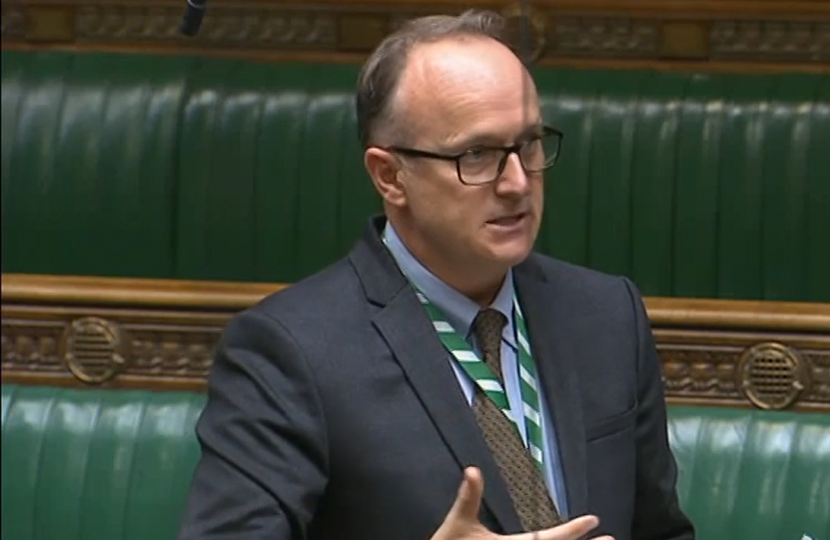
Dr Neil Hudson MP has welcomed the announcement of a major new prostate cancer screening trial that could help save thousands of men’s lives - fittingly announced on International Men's Day.
Backed by £42 million of funding from the Government and Prostate Cancer UK, will use innovative screening methods such as MRI to detect prostate cancer, and it will see hundreds of thousands of men across the country participating.
Dr Neil Hudson MP said:
"Tragically some 12,000 men die of Prostate Cancer every year. But with Government now able to support and utilise innovative new screening methods, this trial will prove crucial in our response to this disease.
"I'm proud to support this effective exercise in preventative medicine - finding cancer before it spreads and helping save lives."
Prostate cancer is the most common cancer in men in the UK and has no screening programme. It usually has no symptoms until it has grown large and may be more difficult to treat and, sadly, 12,000 men die of it every single year.
A way of effectively screening for prostate cancer could find these men before their cancer spreads and save their lives. The trial has the potential to see new screening methods give more accurate results than the current blood tests, which can miss some cancers and often suggest prostate cancer when no cancer exists. Crucially, screening could also spot the disease even when no symptoms are displayed.
Secretary of State for Health and Social Care Victoria Atkins said:
“Cancer survival rates continue to improve in the UK, with the disease being diagnosed at an earlier stage more often. But more must be done.
“Our hope is that this funding will help to save the lives of thousands more men by through advanced screening methods that can catch prostate cancer as early as possible.
“Alongside this, we are supporting more men to access important heart and circulatory health checks in their workplace to help prevent issues like heart disease and stroke.”
1 in 4 Black men will develop prostate cancer – double the risk of other men. Therefore, to ensure the trial helps reduce their risk of dying from this disease, 1 in 10 men invited to participate will be Black men. Participating men in the screening trial will be aged 50-75, with Black men eligible from the lower age range of 45-75.
Men at higher risk of prostate cancer due to age and ethnicity will be recruited through their GP practice and invited to a screening visit.
More than 52,000 men are diagnosed with prostate cancer every year in the UK on average – that’s 144 men every day. Around 490,000 men are currently living with and after prostate cancer.
£16 million will be invested by the Government for the trial through the National Institute of Health Research and Prostate Cancer UK, who have led the development of the trial, will provide £26m. The trial is due to start in Spring 2024 with recruitment likely to begin in Autumn 2024.
The government has already opened 127 community diagnostic centres to offer quicker, more convenient checks outside of hospitals for conditions such as cancer, with over 5 million additional tests delivered so far.
The Major Conditions Strategy will also consider the prevention, diagnosis, treatment and management of conditions including cancer. The UK is already working with world renowned scientists to deliver new cancer vaccine trials and is growing the size of the specialist workforce.
In other measures announced for International Men’s Day:
- The Government will be recruiting for the UK’s first ever Men’s Health Ambassador and are inviting applications from anyone with an interest and expertise in men’s health. The successful candidate, to be announced in the coming months, will be responsible for increasing awareness of certain conditions and health needs faced by men. They will help dispel taboos and stigmas and encourage more open conversations among men about their general health.
- The Government will establish the first Men’s Health Task and Finish Group. Membership will include behavioural scientists, men’s health campaigners, experts and academics. Together, they will help us identify how we can get more men to engage with their health, including a focus on better understanding male access to primary care services, such as GPs, and male uptake of the NHS Health Check.
- NHS England will deliver a host of important improvements and updates to pages on its website most used by men to make it easier to both find and understand the help and support on offer for certain conditions. Pages on issues such prostatitis, testicular cancer, and low sperm count will be updated in the coming months.




